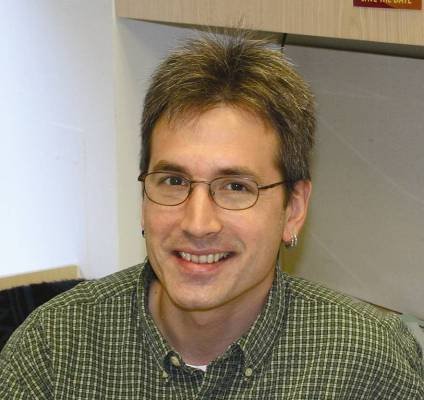Sixteenth Sunday in Ordinary Time
What with the choir being gone, and so much to do around the house, we go again to 8:30 a.m. Mass. Leading us is Father Caulfield, with Deacon Work assisting him. I see Heather in the procession as one of the eucharistic ministers.
The readings are all shepherds, all the time, scattering and reassembling the flock. First is from Jeremiah. "Woe to the shepherds who mislead and scatter the flock of my pasture, says the Lord ... I myself will gather the remnant of my flock from all the lands to which I have driven them and bring them back to their meadow." St. Paul tells us, "In Christ Jesus you who once were far off have become near by the blood of Christ." And especially Christ the Good Shepherd, from the Gospel reading:
When he disembarked and saw the vast crowd,Now, oddly enough, all this makes me think of President Bush, who famously declared to be "a uniter, not a divider." And I had never ever noticed the evangelical overtones to that statement before, but there it is. Here it is.
his heart was moved with pity for them,
for they were like sheep without a shepherd;
and he began to teach them many things.
It makes me think of another semi-famous instance in 2000 where then-candidate Governor Bush in his stump speech would say, "Don’t be taking a speck out of your neighbor’s eye when you got a log in your own." Then Washington reporter (and now food critic) for the New York Times, Frank Bruni, reported that Bush seemed to have invented a new twist on the old adage about the pot calling the kettle black. Governor Bush of course was loosely quoting Jesus, from the Gospel of St. Matthew.
I don't know if President Bush actually believed it at the time, about being a uniter, not a divider. More lately he has declared that he is the decider. But whatever, he has rather become a most polarizing figure. But the message that he presented way back when, was both politically soothing, as well as a Biblical reference, that some people got I suppose, but I didn't.
Or, as better put elsewhere, here's how a profile of Mike Gerson in the New Yorker explains it.
Gerson says that he is flummoxed by the debate over religiosity in the White House. “There’s an idea that we are constantly trying to sneak into the President’s speeches religious language, code words, that only our supporters understand,” he said. “But they are code words only if you don’t know them, and most people know them.”Gerson then goes on to cite the Frank Bruni example, saying with obvious relish, "No one at the Times seemed to know that these were the words of the Sermon on the Mount."
(And I have to admit that I know the reference from first reading it in Stephen King, in The Stand, where Frannie for some reason ponders the line from St. Matthew, wondering about motes and beams, as they're called in the King James. She free associates, coming up with Abe Beame, once the mayor of New York. Hearing it in church ever nowadays, or reading it in St. Matthew, or hearing Mike Gerson talk about it, I still instantly think about Frannie and Abe Beame.)
With all the shepherds, the Responsorial Psalm is, of course, from the Twenty-Third.
The processional hymn is There's a Wideness in God's Mercy. The first time I glance at the title on the music leaflet, I think it's "There's a Wildness in God's Mercy." Whatever could that mean? Or, it's better than "There's a Weirdness in God's Mercy," I suppose.
Then, later, I can't for the life of me get out a line, without screwing up, of the recessional hymn, Praise to the Lord, the Almighty. It's in 3/4 time (or maybe 6/8, with snatches of 3/8?) with syllable count of 14 14 478. Crazy. Dawn has no trouble with it, though.


0 Comments:
Post a Comment
<< Home